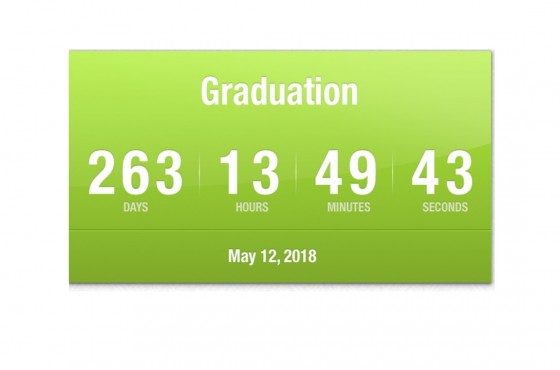COLLEGE EXIT STRATEGY PARENTS NEED TO WORRY AS MUCH ABOUT GETTING THEIR CHILDREN OUT OF COLLEGE AS GETTING IN
As parents are discovering the hard way, many have focused too much on getting their children into the right college and not enough on transitioning into the professional workplace. Parents are motivated, but are unsure how to help. In investment language, parents overlooked the college exit strategy.
Business people understand businesses need long-term planning to improve the odds of success. Individuals plan for retirement to have a clear idea of what funds and options are available once a decision is made to leave a career and job. Planning for college requires the same rigorous long-term strategies. Understandably, parent endeavors are focused on getting their children into college. But with ongoing economic pressures dimming employment prospects, parents and college students need to adopt a more businesslike approach to moving through and out of college.
For many, there is no college exit strategy. An exit strategy is not about a college student declaring a major. It’s the plan to improve their chances of finding a professional job suited to their education and degree, talents and interests.
Parents understand looking for a first job is very different today. And they’re right. The rules and norms of searching for a job have changed. It’s not easy to keep up with all these changes—it moves fast. They also know it takes more than a resumé for today’s college students to land a first professional job. When it comes to preparing for that first professional job search, parents say the most important things needed to prepare are understanding what employers are looking for; having the right connections; knowing how to communicate professionally and persuasively; focusing on a career area; and creating a job search strategy. Again, they’re right: These are the knowledge, tools and behaviors college students need to land their first professional job.
The development of these knowledge, tools and behaviors occurs over the entire time a student is in college, not simply in the last year.
Just as with the college admission process, parents and college students are seeing the need to develop an exit strategy to move through and out of college. There are specific steps every college student can take during school and afterwards to dramatically improve their chances of finding a professional job suited to their talents, interests and education.
RESEARCH STUDY
More Than A Resumé authorized this national survey by Bauman Research & Consulting in collaboration with Emotional Reason, an insights-to-strategy consultancy. More Than A Resumé principal Jane Horowitz is a career-launch coach working with college students to make college-to-career transition easier and landing that first professional job happen faster.
RESEARCH SUMMARY
A full 71% of parents were involved or highly involved in their child’s college admission process, with one-third paying for outside resources, including exam prep courses, tutoring, essay coaches and application consultants. In contrast, just 40% of parents are helping their children land that crucial first professional job after graduation and only a tiny 1% pay for expert support, such as resumé preparation or job search coaching.
Parents are overly optimistic about how fast their children will secure professional employment. Seven out of 10 believe their child will land his or her first professional job with within five months of graduation, while 23% say their child will have a job by graduation. But 40% of parents with recent graduates say it took their child six months or more to find a job, while 22% report it took more than one year.
Parents freely admit they are in over their heads when it comes to helping their college grads launch their careers. And they are finding job-placement services at colleges woefully inadequate. Parents now realize that a top school education doesn’t guarantee a job. In investment language, parents have overlooked the exit strategy.
A vast majority, or 95%, of parents agree that looking for a first job is very different today than when they joined the professional workforce:
▪ 73% say they do not have the right knowledge and contacts to help their child
▪ 68% percent don’t know how to help
▪ 58% say they do not have a trusted network for support and help in this process
College career centers aren’t stepping up, either. More than half, or 54%, of parents, somewhat or strongly disagree with the statement: “My child’s college has excellent career service resources.” At 64%, the disappointment is even higher among parents involved with their child’s job search. In fact, parents in interviews related such experiences as:
- “My kid realized he has to go it alone. They don’t know what to do with a history major.”
- “The career services center told him (a college senior) it was too early.”
- “They told him 80% of our students go on to graduate school, it’s not our focus.”
A CALL TO ACTION
Consider career services as a college selection criterion.
When touring colleges, learn how the school views, funds and staffs its career services center. Ask questions to help you and your child create an exit strategy that will smooth the transition from college to the professional workplace.
Some questions to consider asking:
- How is the career services center funded? What do they spend per student? Is that an increase or decrease from previous years? Schools have this information.
- What programs do they offer? How will these programs help my child find their first professional job? How do they engage students in the career service center?
- Who works directly with students? Can I expect a professional or a student peer throughout the process?
- What value does the school place on internships? How do they assist students in finding meaningful internships?
- What is the school’s job placement record? Are students graduating with job offers? In which fields and careers? This information is not easily obtained, although it should be.
- What specifically do they offer Liberal Arts and Humanities students, or those students without a well-defined career path?
Employers are not hiring students. They are hiring new professionals.
To land a professional job after college, it is not only about a major and a GPA. It’s more important for students to demonstrate they have a willingness to learn and that they have developed real-world skills and qualities employers value. Manage a college career—courses, internships, jobs and activities—and a career to gain the following.
- Ability to communicate persuasively with persons inside and outside the organization in many mediums
- Ability to make decisions and solve problems
- Ability to obtain and process information
- Ability to plan, organize, and prioritize work
- Ability to analyze quantitative data and turn data into insights
- Technical knowledge related to the job
- Proficiency with computer software programs
- Ability to create and/or edit written reports and other content
- Ability to be adaptable and flexible
- Ability to communicate using new media
- Ability to perform in/with diverse environments and cultures
- Ability to determine the deeper meaning and significance of what is being said
- Bring a deep understanding in at least on field but have the capacity to converse in the language of a broader range of disciplines
- Ability to focus on what is important
RESEARCH FINDINGS
- In this national survey, almost all—95% of parents—agree looking for a first job is very different today.
- Almost 73% admit they do not have the right knowledge and contacts to help their child
- 68% wonder what more they can do to help
- Over half, or 58%, say they do not have a trusted network for support and help when they need it most
Parents want to help. They don’t know how. They are unsure if their knowledge and experience is relevant. Unlike the support system that exists to get students into college, there are few, if any, parental resources in this area.
- Over 50% say college career centers aren’t up to the task
- When asked, “My child’s college has excellent career service resources,” 54% somewhat or strongly disagree with the statement and 64% of those parents who are involved with their child’s first job search say the same
- Over 50% of parents did not consider career services or job placement rate as college selection criteria
- Over two-thirds of parents didn’t investigate, visit or compare career service centers
In related qualitative research with parents, most assumed the career service center was effective and “good at helping kids get jobs.” Yet, conversely, most parents were unsure what kind of people work in these centers, what backgrounds and experience define their credentials, and what exactly centers do for students beyond schedule job fairs and career panels.
Parents rely on getting into the “right” school. Most are counting on the university to help.
- 72% believe their child’s college “brand” will give the necessary competitive edge in the job market
Parent assumptions about how long it takes to land a first professional job do not align with reality.
- Almost 71% of parents believe their child will land their first professional job out of college in 5 months or less
- 23% say their child will have a job at graduation
- 40% of parents who have a child past graduation say it took their child 6 months or more and 22% say it took over a year
Parents say they have a different job search timetable than their children.
- 40% of parents say they started thinking about their child’s career search during the child’s junior year
- 31% of parents estimate their child won’t begin thinking about a job search until senior year
- 30% say their child won’t start until after graduation day
Parents were active participants with their kids to get into the “right” school, but less than half are involved with a first job search.
- 71% of parents were involved or highly involved in their child’s college admission process
- One-third paid for outside resources to ensure their child got into the desired school, including exam prep courses, tutoring, essay coaches, application consultants, books and publications
- Another third took advantage of free high school programs and counselors or online services
- But when looking for that first crucial job, less than half (only 40%) of parents are involved; very few—just 1%–pay for any kind of outside help for their child
Download the report….
More Than A Resume_The College Exit Strategy_Call to Action_April 2013
About the research
A national survey was conducted online in March 2012 with 250 parents of children either in their last two years’ of college or graduated within the last two years (but who did not attend graduate school). The survey asked parents to identify how, and to what degree, they prepared and helped their children find their first professional job out of college, and what they believe is important for a new grad’s first professional job search in today’s economy. The survey was conducted by nationally recognized Bauman Research & Consulting in Glen Rock, NJ, in collaboration with Emotional Reason, an insights-to-strategy consultancy in Chicago, IL.



